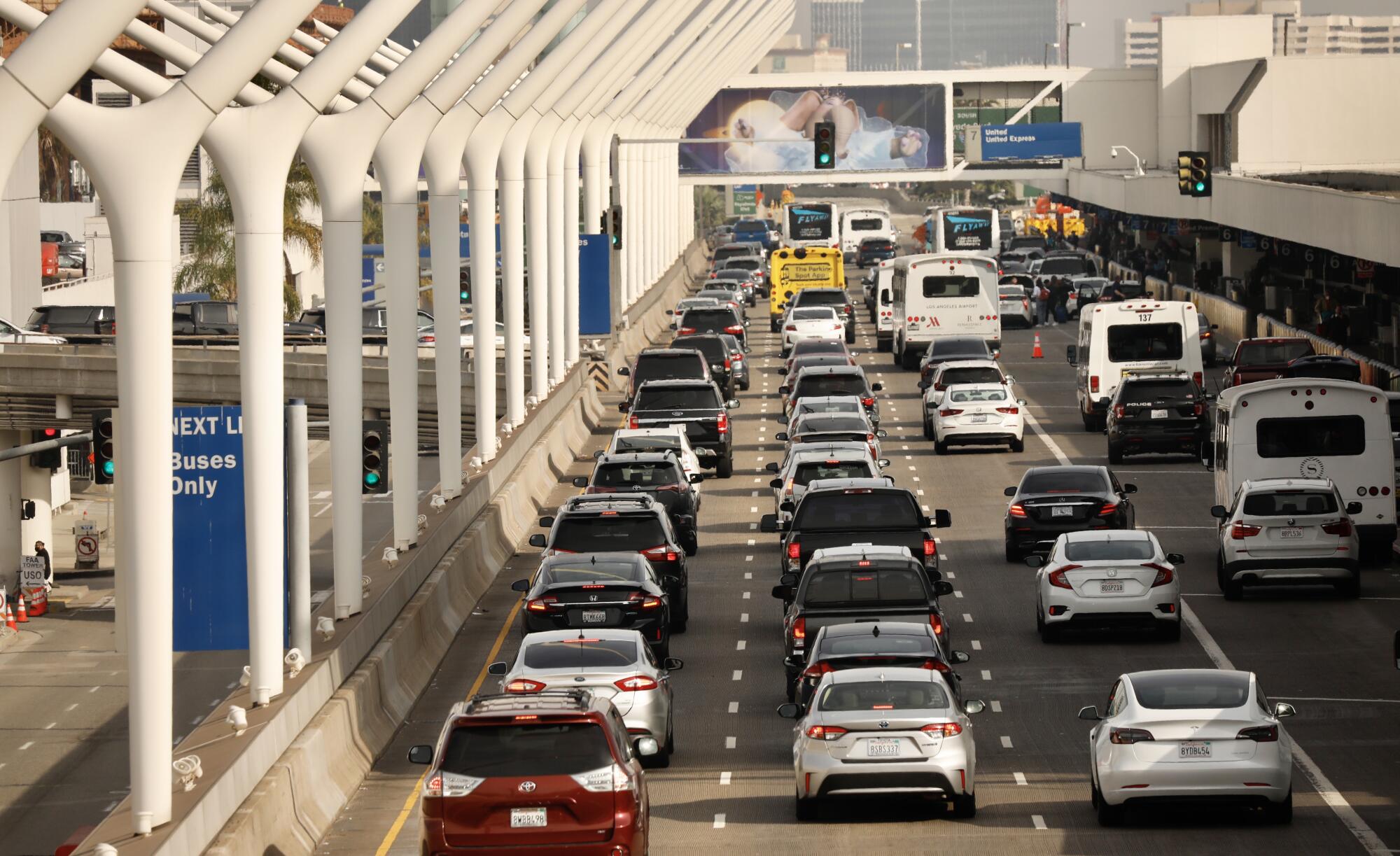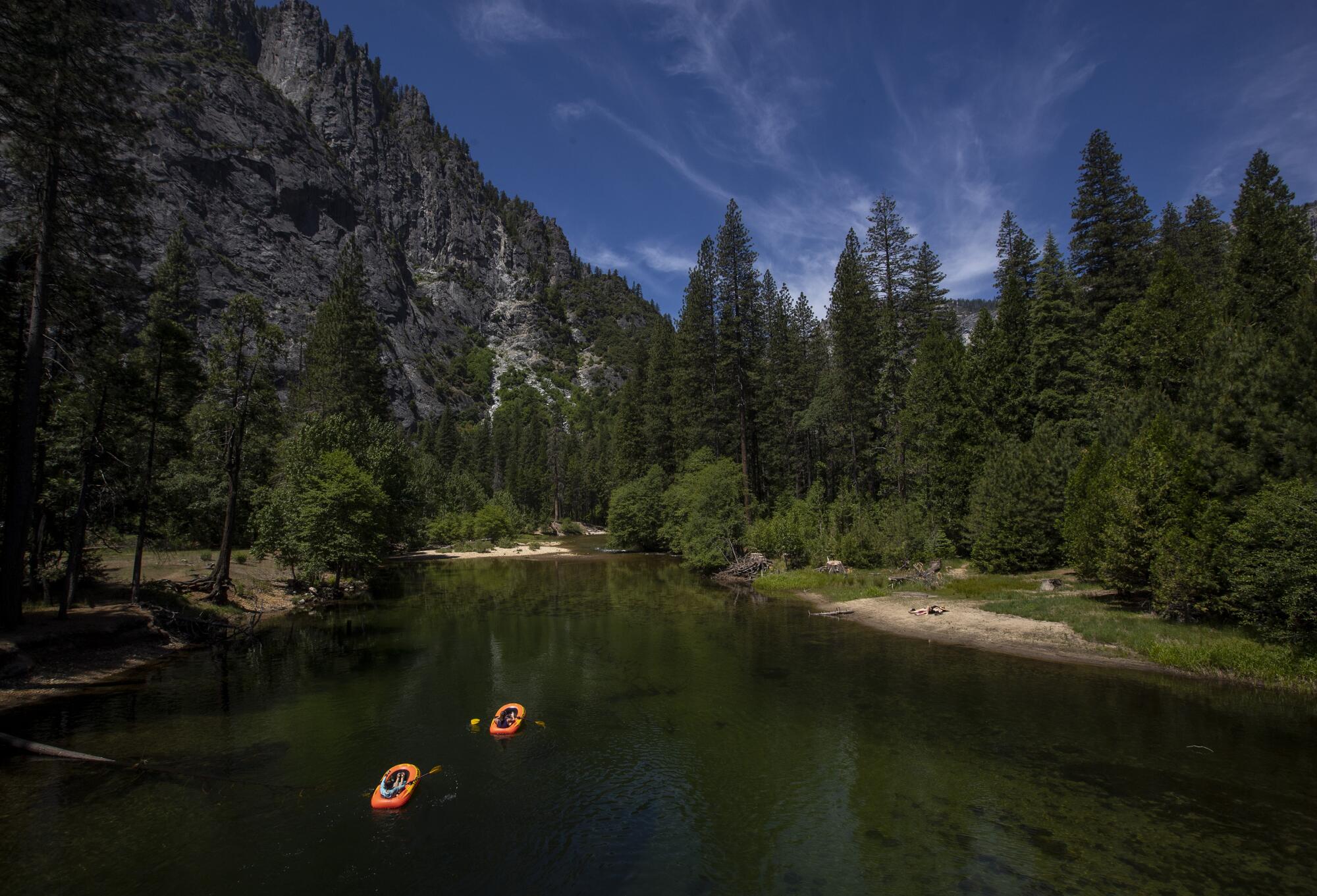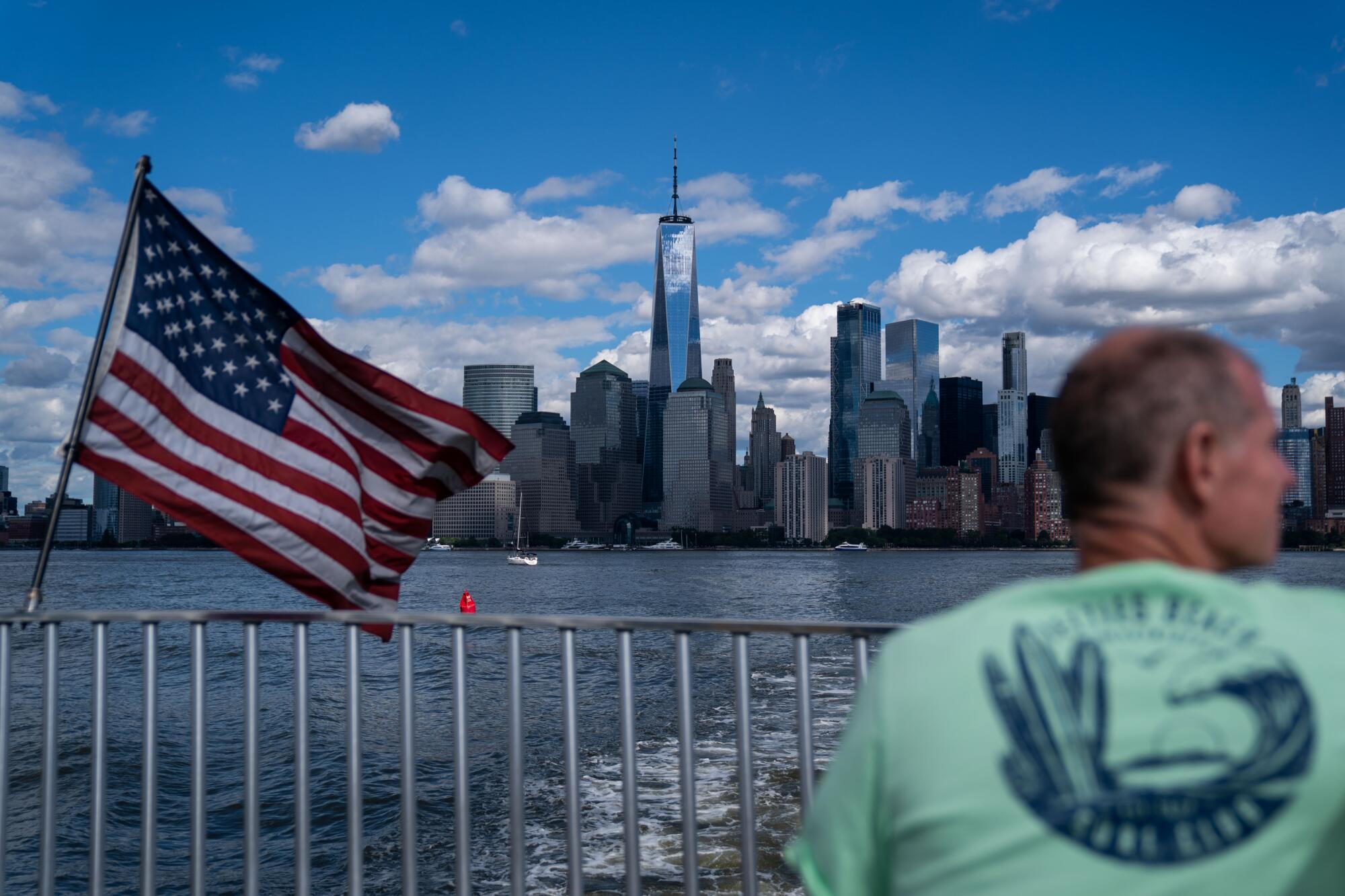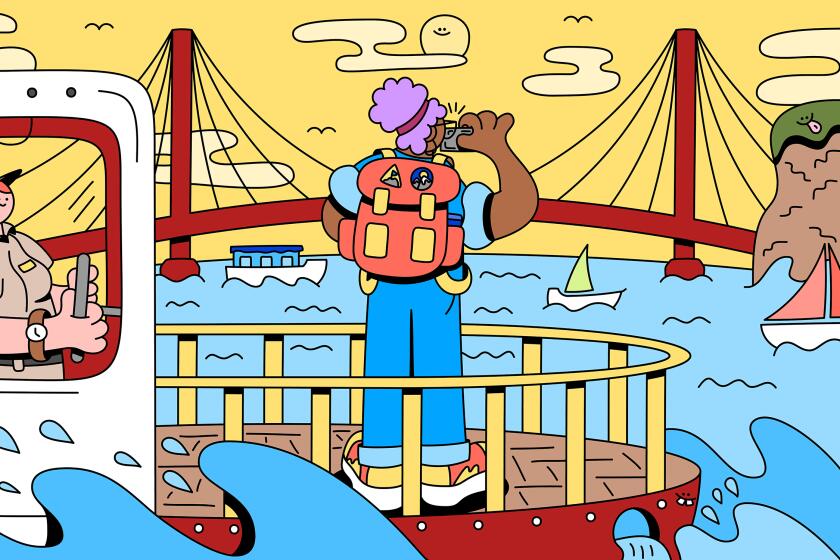
Some travel advice is ageless. Go in the off season when you can, midweek if possible. Be willing to take red-eye flights. Don’t order room service. Take off your Dodgers hat.
The advice below is different. It’s tailored to this strange moment in history, with inflation galloping and pandemic recovery lurching unpredictably as most airlines, hotels and rental car outlets charge more than they did pre-2020. There are thrills and insights waiting for travelers out there, and we could use them. Here are some ideas on how to travel better, more easily and more affordably in the year ahead.

1. Take a ferry
Really, just about any ferry. The prices are usually a pittance, and in exchange you get the thrill of being on the water and the novelty of a new skyline view. Even if you’re vulnerable to seasickness, most of these are quick, easy rides unlikely to trouble your stomach.
In San Diego, it’s $7 each way to ride between downtown and Coronado (bikes free). In San Francisco, it’s $13.50 to $14 each way to Sausalito, Tiburon, Angel Island or Larkspur; or $4.50 to $5.75 each way between the Embarcadero and Oakland. In Newport Beach, it’s $2.50 per car (and $1.50 per adult passenger) or $1.50 per pedestrian each way between Balboa Peninsula and Balboa Island. Length of journey: about 800 feet.
Even for the 20-plus-mile journey between Long Beach (or San Pedro) and Catalina Island, the tab is a relatively modest $83.50 round trip, and you have a good chance of seeing dolphins. For this one, you might want Dramamine or Bonine, though.
2. Consider Avelo Airlines for flights to western airports that other carriers ignore
The carrier flew its first flights in April 2021. From Burbank, Avelo flies direct to Sonoma/Santa Rosa and Eureka/Arcata; Medford/Rogue Valley, Eugene and Bend in Oregon; Boise in Idaho; and Paso/Tri-Cities in Washington. Like Southwest, Avelo flies only 737s. Be advised, however, that Avelo does play the nickel-and-dime game. Beyond the base price you see first, you should expect added fees of $40 to $50 for a second carry-on bag; $40 to $50 per checked bag; and $11 or more to select your seat. Still, its destinations and prices might save you time or money or both.
3. Before you book any flight, consider the rental car cost on the other end
Rental car prices skyrocketed in the first year of the pandemic, and they’re still far higher than they were in 2019. Between July 2019 and July 2022, the Bureau of Labor Statistics’ Consumer Price Index found that car rental prices rose 48%. (Over the same time, hotel prices rose 7% and airfares rose 16%.)
Depending on how gas prices are behaving, you might want to drive instead of flying to Las Vegas or the Bay Area or more distant points. If you do fly, you might still dodge rental car fees by using public transit or ride-sharing to cover the distances you can’t walk or bike.

4. Avoid LAX parking fees by catching a ride-share service or taxi
If you’re using a ride-share service or taxi for airport pickup, that often means navigating the LAX-it (pronounced L.A. Exit) lot, which opened next to Terminal 1 in 2019. That’s where most of the drivers line up to meet customers. It was designed as a temporary measure but now is expected to remain in place throughout 2023.
There are, however, two taxi stands elsewhere at the airport that don’t get as much attention. One is in Parking Structure 3, which serves many travelers using the Tom Bradley International Terminal and Terminal 3. The other is at the east end of Terminal 7, outside of the baggage claim area used by those who fly in to terminals 7 and 8.
LAX-it will close (and ride-shares and taxis will go back to looping through the terminal area) once LAX opens its long-planned Automated People Mover (APM), an elevated electric train system with moving sidewalks and escalators. The APM — a major milestone after years of changes and construction at LAX — had been due for completion by the end of 2023. But on Nov. 16, LAX spokesman Heath Montgomery said, “We anticipate the beginning of operations for the APM in 2024 and are working to have a more definitive operational date soon.”
By carrying passengers directly to parking areas, public transportation and a rental car facility, the APM is designed to reduce traffic substantially in “the horseshoe” of roadways that leads past terminals 1-3, the Bradley International Terminal and terminals 4-8.
5. But if you need to drive to LAX, here’s the lowdown on economy parking
The airport’s economy parking area has moved twice in the last three years, so plenty of people are confused. The LAX Economy Parking area is now in a 4,232-space structure at 6100 W. 94th St., a 15-minute shuttle-bus ride from the terminals.
That structure opened in October 2021, replacing Lot E, which replaced Lot C in 2019. To park there, drive-up customers pay up to $35 per day. (The limit was $30 until Nov. 14.) You can often save 20% or more by prebooking online. You also can check in real time to see how full the airport’s parking areas are. (Prices at off-airport facilities like Wally Park and the Parking Lot can be lower or higher, depending on amenities and demand.)
If you want to park as close as possible to the terminals at LAX, spots in the Central Terminal Area cost up to $70 per day (previously $60), with discounts for booking in advance. Because of construction, those spots are in unusually short supply.
6. Don’t compare Airbnbs until you’ve found the bottom line
On an Airbnb house in the Bay Area that my family just booked for Thanksgiving, the base price was $487 per night. By the time cleaning and service fees and taxes were added, the tab was $664 per night.
Given that just about every Airbnb guest turnover requires servicing and cleaning, it would seem more honest to combine those numbers into a single, bottom-line fee. But for years, Airbnb and its hosts resisted that while raking in revenue.
Now things are improving a bit. Customer complaints grew so loud that on Dec. 1, the website started allowing customers to toggle a digital “switch” so that when browsing, they will be able to see prices including all fees (excluding taxes). This is what the European Union consumer-protection laws have required since 2018, so it’s nice for American consumers to catch up.

7. Congrats, you’re in a national park. Now get off the road.
Park rangers for years have lamented that few travelers get more than a few hundred yards from the road, even in places like Yosemite Valley and Joshua Tree, where flat trails lead to incredible views. Now a group of cartography students at the University of Wisconsin at Madison has added to the data. Analyzing geotagged photos from national parks on Flickr, they found that 86% of the photos were shot less than a mile from the nearest road. For a deeper natural experience, put the blacktop a mile or more behind you (and remember to bring enough water).
That will be doubly true in Yosemite this summer. For the first time since 2019, the park won’t be requiring advance reservations for peak-hour day visits in summer, which may mean heavy traffic in Yosemite Valley. You can limit that hassle by aiming for trails and attractions in other areas in the park, like Wawona and Tuolumne Meadows — and by getting to the entrance early.
8. Beware hotel resort fees and speak up
Hotels aren’t charging cleaning fees the way vacation rental homes do — at least not yet. But many hotels pad bills with “resort fees,” which are basically mandatory. This allows hotels to claim a deceptively low base price in order to attract more searchers on the web, and then hit them with $20 to $50 per night in extra charges. This is notably common in Las Vegas, Hawaii, Palm Springs, Anaheim and San Diego, as the site ResortFeeTracker shows.
How to fix this? On Oct. 26, President Biden said the Federal Trade Commission had started work on a rule to cut down on this kind of deceptive fees. Then again, federal officials have talked about this before without results.
For now we’re on our own. Always check a hotel’s fine print (or call and ask the desk) for its resort fees. And whenever there’s a survey or a chance to address front desk staff, tell the hotel staffers how you feel about these fees.
9. Bargain hunters should think twice about San Diego and consider San Francisco
In the first 10 months of 2022, San Diego’s average hotel rate jumped to about $207 nightly, up from $171 in 2019. By the reckoning of industry analyst STR, that puts San Diego’s hotel rates among the fastest-rising in the U.S.
In the San Francisco/San Mateo area, meanwhile, average rates have dropped from $252 to $215 in the same time. Demand also has fallen for tickets to Alcatraz, the former prison island that has been one of the city’s most popular family attractions for decades. In years past, Alcatraz tours (which include a ferry ride) sold out months ahead. Now availability is much greater, so you might even be able to see the island on short notice.

10. For an affordable New York hotel, consult Pauline
That would be Pauline Frommer of Frommers.com, who lives in Manhattan and makes it her business to check out the city’s cheap-ish hotels herself. It’s a tough job — the average daily rate in Manhattan eclipsed $300 over the summer, and she’s on the lookout for rates below that. But this is the bargain hunter whose dad, Arthur, wrote the original “Europe on 5 Dollars a Day” in 1957. Here is her latest assessment. For a fuller treatment of New York City (researched after the lockdowns), there’s the Frommer’s guidebook (about $20).
11. Time for Europe? Americans can eat and shop for less now because the dollar is stronger
Yes, we have inflation. But others have it worse. As of mid-November, the dollar was about 13% stronger against the euro than it was a year ago. Against the British pound, it’s about 15% stronger. As Forbes noted in an October story, airline tickets and hotel rooms often are insulated from these fluctuations. The difference in buying power is most likely to show up in restaurant prices and retail prices.
More ways to shake up 2023
More to Read
Sign up for The Wild
We’ll help you find the best places to hike, bike and run, as well as the perfect silent spots for meditation and yoga.
You may occasionally receive promotional content from the Los Angeles Times.










